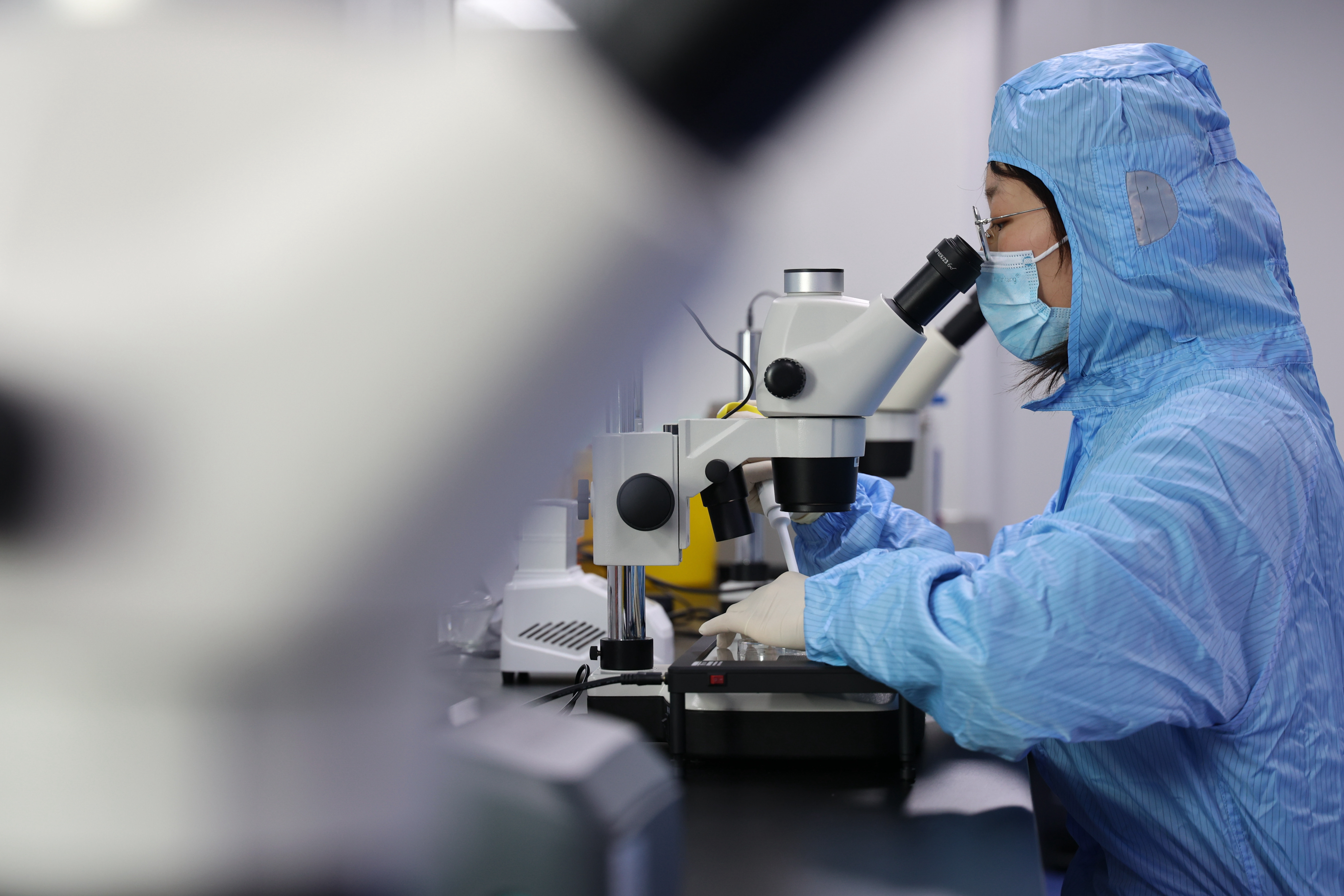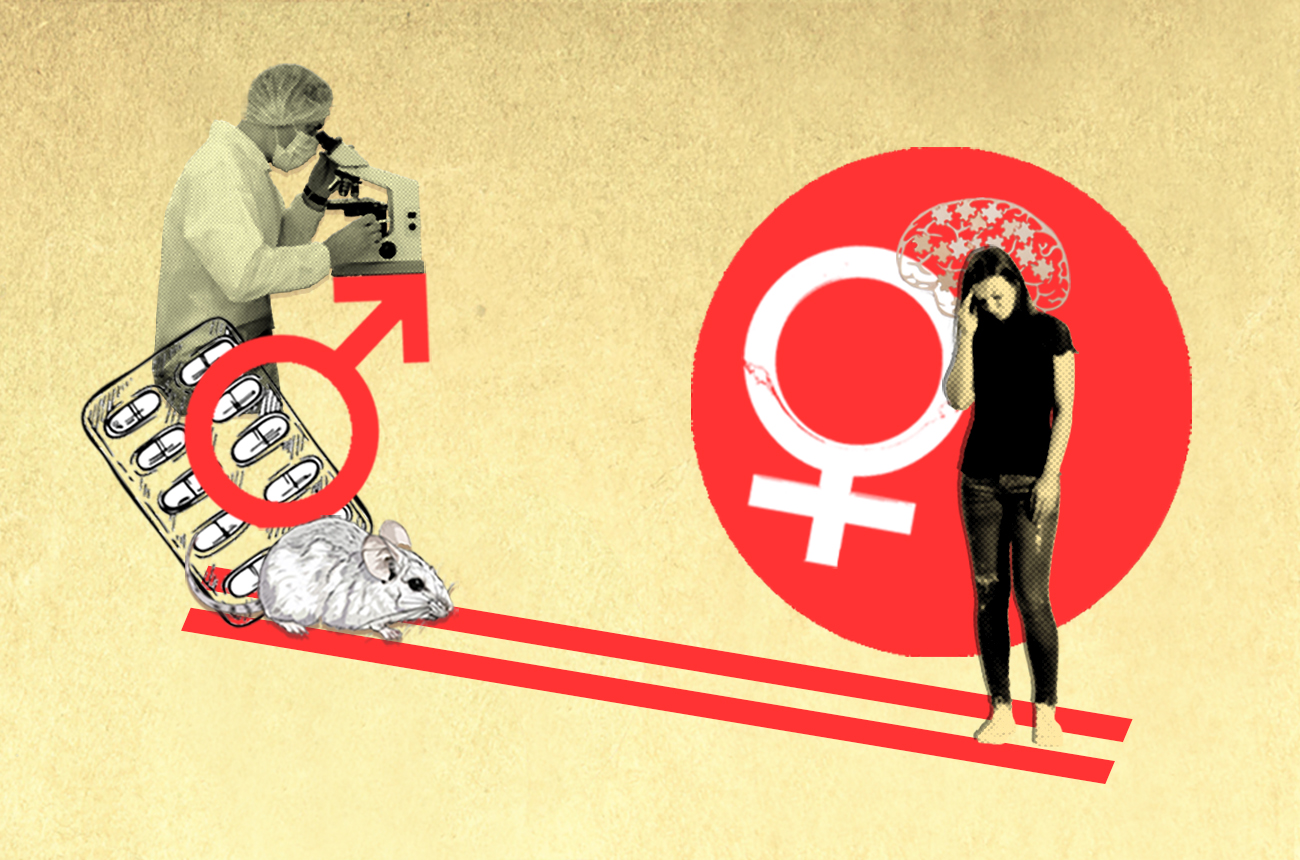Trump presidency to test public trust in Big Pharma

A second Trump presidency could be a boost for biomedical innovation, but it also risks eroding public trust in the pharmaceutical industry if science, trade and public health are sidelined.
+Get the most important news from Switzerland in your inbox
Big pharmaceutical companies including the two big Swiss players, Roche and Novartis, had a lot at stake in the US presidential election. Under the Biden administration, the US government started to negotiate down drug prices with industry for the first time. A second Trump presidency throws this and many other Biden-era healthcare policies up in the air.
“We still have to see what Trump’s polices actually are,” David Reddy, who heads the International Federation of Pharmaceutical Manufacturers and Associations (IFPMA), told SWI swissinfo.ch on the sidelines of the FT Global Pharma and Biotech Summit in London. “Regardless of political party though, everyone wants the same thing – good health and innovation.”
How Trump plans to move forward on many healthcare issues is still to be seen. It’s highly likely that lowering drug prices in a bid to reduce the financial burden on patients will be on his agenda. Vice President Kamala Harris was expected to expand Biden-era price negotiations beyond ten initial drugs, something the pharmaceutical industry argues would bite into their profits and thwart investments in innovation.

More
Novartis blasts US move to rein in drug prices
Trump hasn’t said whether he will continue in the same vein. In his first presidency, he also sought to bring down drug prices but made little headway on his proposalExternal link to use international drug price comparison to get a fair price in the US.
Any move to lower drug prices directly affectsExternal link Swiss companies and the economy. The US is the largest pharmaceutical market in the world, accounting for over 40% of global pharmaceutical sales at big companies like Novartis and Roche. Half of Switzerland’s growth over the last ten years has come from the pharmaceutical industry. Lowering drug prices would affect the tax base in Switzerland.
But the pharmaceutical industry has other concerns with a Trump presidency. If the campaign rhetoric on science, safety and public health is any sign, Trump’s return to the White House could test public faith in the pharmaceutical industry that goes far beyond drug prices.
‘Radical’ innovation
One question weighing on the industry is how the Trump administration will view biomedical innovation. “Trump and his close supporters like Elon Musk have shown that they aren’t afraid of radical innovation,” one executive from a Swiss pharma company told SWI at the FT Summit.
This could inject fresh investment and ideas into technologies and hard-to-treat diseases, but it could also lead to major disruptions. There are already signs that Trump would overhaul or even wipe out entire federal agencies that serve to drive innovation and protect public health. Republican lawmakers have already discussed massive restructuringExternal link of key US agencies such as the Centers for Disease Control and Prevention and the National Institutes of Health.
“The US Food and Drug Administration is in many ways the gold standard and it’s an institution that many look up to from across the world,” said Sebastian Guth, the US chief operating officer of German pharmaceutical company Bayer, on a panel discussion on the US elections. “As an industry we are very dependent on working with agencies that are predictable, science-based, and don’t waiver on their commitment to patient safety.”
The Project 2025External link playbook, prepared by US conservative groups, points the finger at the pharmaceutical industry, “calling for safeguards against the regulatory capture of our public health agencies by pharmaceutical companies”.
Trump is also expected to take a harder line on China than his predecessor, which could sow suspicion of partnerships between Big Pharma and players in China’s burgeoning biotech scene. This is happening at time when China has become a more important biomedical research and development hub, especially for oncology drugs and artificial intelligence.

More
Big pharma’s growing China ties under threat from US crackdown
Many companies have also been strengthening manufacturing ties with Chinese suppliers. This could become more complicated if there is a further tightening of sanctions against China or wider protectionist policies.
The Swiss pharmaceutical industry relies heavily on global trade given the small market in the country. The pharmaceutical and chemical sector account for about 40% of Swiss exports.
“Innovation-friendly framework conditions are essential,” said Georg Därendinger, who leads communications at the Swiss pharma industry association, Interpharma. “We are opposed to protectionist tendencies and industrial policy.”
Worries for science and public health
The greatest threat to trust in the industry may well be Trump’s views on science and public health. Trust in science has dwindled in the US since the pandemic. A survey by Pew research firmExternal link in 2023 found more than one-quarter, 27%, of US adults had little to no trust in scientists compared to 13% in 2019.
Trump and many of his high-profile supporters have expressed scepticism about vaccines and have promoted questionable scientific theoriesExternal link in the past. Health policy proposals included in the Project 2025 playbook call for a diminished role for scientific research but Trump has denied any involvement in the project.

More
Swiss nerves jangle after Trump victory
Trump has said that he would let Robert F. Kennedy Jr, a vaccine sceptic, “go wild” on health and wouldn’t rule out bans on certain vaccines. Vaccines have saved an estimated 154 million lives worldwide over the last 50 years, according to a studyExternal link in the Lancet.
The Make America Healthy Again movement led by Kennedy has identified chronic diseases like obesity, diabetes, autism, cancer, and mental illness as key priorities. But reproductive rights are expected to be curtailed as well as investments in women’s healthExternal link research that have been sorely underfunded.

More
Drugmakers are finally making medicine for women
Funding for key global health initiatives such as Pepfar, the US government’s global effort to combat HIV, could also be at risk. In 2020, Trump pulled the US out of the World Health Organization (WHO), accusing the Geneva-based group of being corrupt and under China’s control in the wake of the coronavirus pandemic. President Biden reinstalled the US as a member.
If Trump weakens the WHO and other global health projects, it could make life more difficult for pharmaceutical companies that partner with them to expand access to medicine and build up health infrastructure in low-income countries.
The pharmaceutical industry already suffers from a trust deficit. Questioning the scientific basis for the industry’s work makes it that much harder to earn public trust, Michael Elliott, vice president of medical affairs at US firm Gilead Sciences, told the FT Summit. “We have to double down on communication not only for people’s health but because it raises questions about the value the industry brings.”
Edited by Balz Rigendinger/sb

In compliance with the JTI standards
More: SWI swissinfo.ch certified by the Journalism Trust Initiative









You can find an overview of ongoing debates with our journalists here . Please join us!
If you want to start a conversation about a topic raised in this article or want to report factual errors, email us at english@swissinfo.ch.